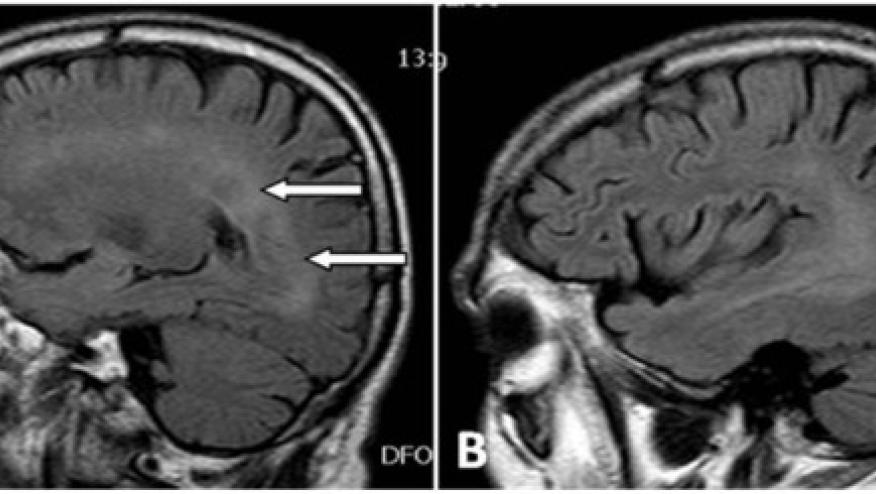Risk of Multiple Sclerosis with TNF Inhibitor Therapy Save

Researchers from the DANBIO registry have linked their registry of 30,033 arthritis patients with the Danish Multiple Sclerosis Registry (DMSR) to identify all new multiple sclerosis cases occuring in arthritis patients and those receiving TNF inhibitors (TNFi).
All MS cases were diagnosed by a neurologist with expertise in MS. After excluding those with MS, a total of 27,880 arthritis pateints were analyzed. During the follow-up period 2000–2012, 10,294 started TNFi therapy. During 113,527 person-years, 12 incident MS cases occurred in the cohort, with a nonsignificant increase and overall SIR=1.11 (95% CI 0.63–1.96) (table 2).
An increased risk was seen in males treated with TNFi (SIR 3.48; 95% CI 1.45–8.37) and in patients with ankylosing spondylitis (AS) (SIR 3.91; 95% CI 1.47–10.42). The SIR for all patients with RA was 0.65 (95% CI 0.24–1.72). Risk was highest in the first 1-2 years of TNFi therapy, more in males, RA males and AS males patients.
We previously published findings of another Danish analysis suggesting that inflammatory bowel disease patients on TNFi had a two-fold increased risk of demyelinating disease.
In summary, these data suggest the risk of MS alone may differ according to cohort or disease and may be higher in men and after the first 1-2 years of TNFi therapy. The much wider spectrum of demyelinating disease may yield a greater risk in RA, as it did in IBD, but still merits further study. Mechanisms underlying such adverse events have not been elucidated.










If you are a health practitioner, you may Login/Register to comment.
Due to the nature of these comment forums, only health practitioners are allowed to comment at this time.